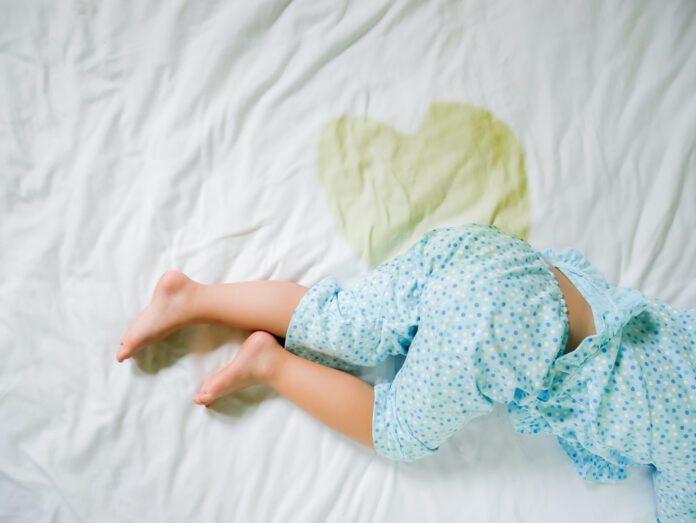Overview Of Nocturnal Enuresis
Bedwetting or Nocturnal enuresis is when a child wets the bed at night more than twice a month after age 5 or 6.
Causes
The last stage of toilet training is staying dry at night. To stay dry at night, your child’s brain and bladder must work together so your child wakes up to go to the bathroom. Some children develop this ability later than others.
Bedwetting is very common. Millions of children in the United States wet the bed at night. By age 5, over 90% of children are dry during the day, and over 80% stay dry through the night. The problem usually goes away over time, but some children still wet the bed at age 7, or even older. In some cases, children and even a small number of adults, continue to have bedwetting episodes.
Bedwetting also runs in families. Parents who wet the bed as children are more likely to have children who wet the bed.
There are 2 types of bedwetting.
- Primary enuresis. Children who have never been consistently dry at night. This most often occurs when the body makes more urine overnight than the bladder can hold, and the child does not wake up when the bladder is full. The child’s brain has not learned to respond to the signal that the bladder is full. It is not the child’s or the parent’s fault. This is the most common reason for bedwetting.
- Secondary enuresis. Children who were dry for at least 6 months, but started bedwetting again. There are many reasons that children wet the bed after being fully toilet trained. It might be physical, emotional, or just a change in sleep. This is less common, but still not the fault of the child or parent.
While less common, physical causes of bedwetting may include:
- Lower spinal cord lesions
- Birth defects of the genitourinary tract
- Urinary tract infections
- Diabetes



